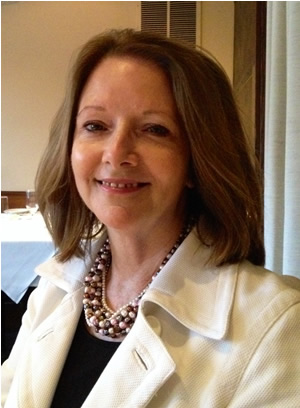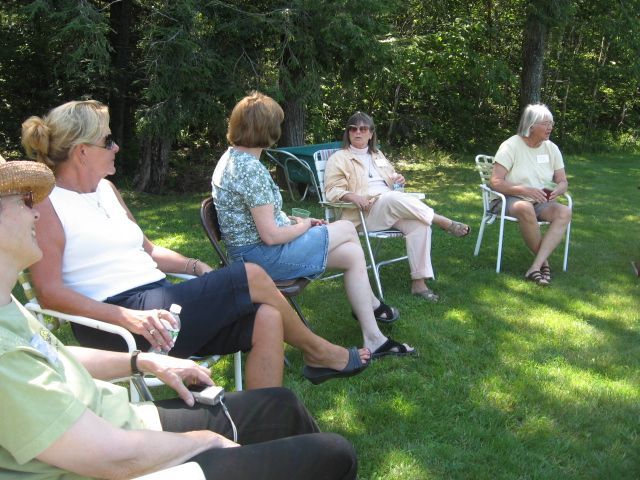Irene Sherlock's poems, essays, and short stories have been published in a variety of literary magazines and her poetry chapbook Equinox was published by Finishing Line Press in 2011. Since 2008, she has been writer-in-residence at the Adirondack Mountain Writers' Retreat. Sherlock is an addictions counselor in Danbury, Connecticut.

In the summer of 2008, I was asked to be the writer-in-residence at the Adirondack Mountain Writers' Retreat, organized by Perky Granger who directs an organization called Fiction Among Friends. Perky has been a recipient of grants from the Readings & Workshops Program at Poets & Writers for many years, and I was delighted to be paid to teach at this retreat. Never having done this kind of thing, I wondered if I’d be up to the task. I’d published work and had been an adjunct college writing instructor for years. Writing and being in the classroom were both a joy for me, but this would be something quite new: I’d be the sole developer of several workshops, leading a mix of both beginning and seasoned writers that I would weekend with, as well. Sounded fun. Sounded a little daunting.
The weekend Writers' Retreat experience, which sometimes lasts four days, is one of complete immersion. We discuss craft, writers, meals we’ve prepared, our love lives—even our kids’ lives. But mostly it’s about the thing that brought us together: what we’re writing now. The experience is both invigorating and somewhat exhausting and my guess is participants feel the same relief by retreat’s end. It’s like being at a wonderful but intense party that lasts for days, something I haven’t done since my early twenties.
I’m a therapist by trade and my day job demands that I listen well. These weekends require the yin and yang of when to listen and when to respond. Response is the trickier of the skills. When I lead a therapy group, I ask myself: Does it need to be said? Does it need to be said now? Does it need to be said by me?
Amazingly the process of leading a writing group and the process of doing therapy are quite similar. I wait and hope someone from the group will talk about where the piece comes to life, what needs to be cut. Who, I wonder, will address the writer’s aversion to letting us know how his or her character is feeling?

Both therapy and writing require courage, honesty, and a willingness to receive honest feedback. Both are connected to the process of self-expression, the work of creating art out of experience real or imagined, which oftentimes involves pain, confession, and sometimes transcendence.
Writing, like therapy, is a way to connect with the larger world. In an age of social networking and digitalized “sharing,” this weekend creates one of the most impactful ways to connect with others. It’s been my pleasure to act as writer-in-residence for eight years now, with support from the Readings & Workshops Program. Much to my surprise, many of the same gifted participants come back each year. I really cannot take credit for that. Call it alchemy or just a stroke of luck on my part; whichever it is, I’ll keep returning, too, for as long as I’m asked.
Photo (Top): Irene Sherlock. Photo (below): Irene and Writer's Group.
Photo Credit: Perky Granger
Support for Readings & Workshops in New York is provided, in part, by public funds from the New York State Council on the Arts, with additional support from the Friends of Poets & Writers.







